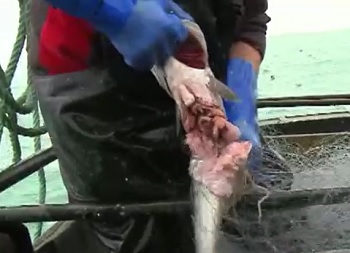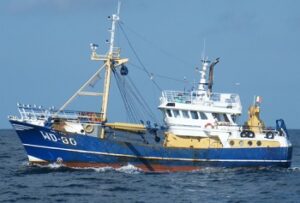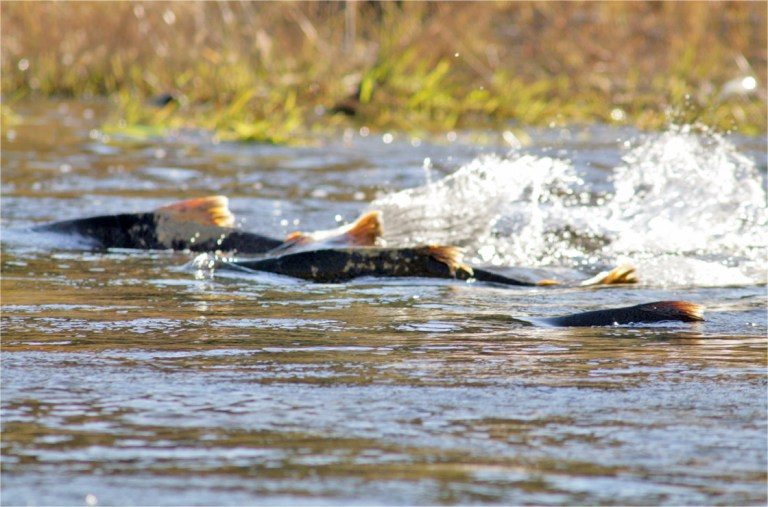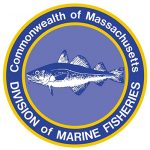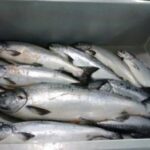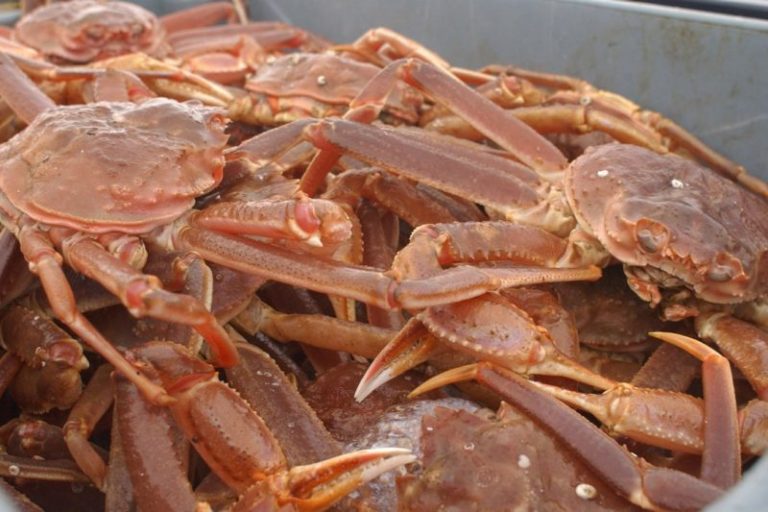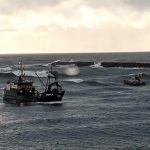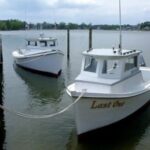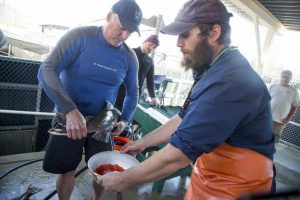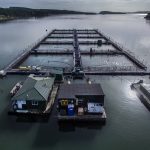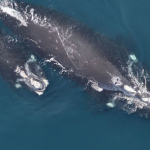Tag Archives: Christian Putnam
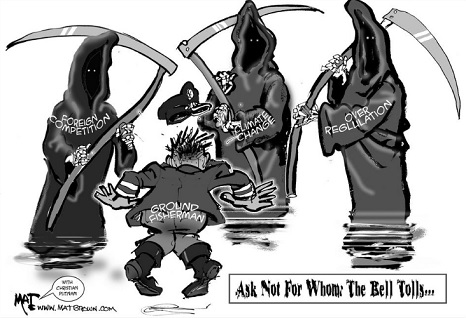
FISHY BUSINESS: A personal look at Scituate fishing
I have been writing Fishy Business about the commercial fishing industry and other maritime topics for a number of years and until now have never referred to myself. This column is different because our commercial fishing industry in Scituate is on the cusp of extinction; which is very personal to me. In this case, “commercial fishing” is referring to the finfish (or groundfish) fleet and the few boats that drag for shellfish. For now, the lobster fleet is doing well, but those businesses face their own perils to be discussed another time.,, There are many factors that are leading to the end of commercial fishing in Scituate and in many other small ports. By Christian Putnam >click to read<09:43
FISHY BUSINESS: There are plenty of fish in the sea
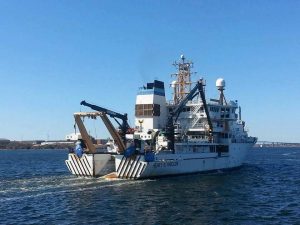 “The ocean has been over-fished, there are only a few more years of fish out there; and then they will all be gone.” “There simply are not any more fish in the sea, they have all been taken!” “The Northeast fishing industry is dead, they have fished themselves out of business.“ These are all common statements one might hear about commercial fishing in the Northeast, although each represents a misunderstanding of the situation. In fact, today these statements are just plain wrong. The Northeast ground fishing industry is in real trouble and has been for some time, which is true. The trouble is not the result of lack of fish. As Fishy Business often points out, the real culprits are poor fishery management by the federal government, incomplete fish stock assessments and bad science. click here to read the story 21:14
“The ocean has been over-fished, there are only a few more years of fish out there; and then they will all be gone.” “There simply are not any more fish in the sea, they have all been taken!” “The Northeast fishing industry is dead, they have fished themselves out of business.“ These are all common statements one might hear about commercial fishing in the Northeast, although each represents a misunderstanding of the situation. In fact, today these statements are just plain wrong. The Northeast ground fishing industry is in real trouble and has been for some time, which is true. The trouble is not the result of lack of fish. As Fishy Business often points out, the real culprits are poor fishery management by the federal government, incomplete fish stock assessments and bad science. click here to read the story 21:14
Scituate’s tribute to fishermen should be wake-up call of industry’s troubles
 It is often said, “All politics is local;” a phrase that is often associated with former Speaker of the House from Massachusetts Tip O’Neil. The phrase is appropriate for the re-dedication of the Scituate town pier on Friday, June 24. The event, hosted by the Town of Scituate and The Scituate Harbor Cultural District, not only recognized the extensive renewal of the pier and the public servants that shepherded the project through the political funding process, but importantly also recognized the fishing families that make their living by operating the small fishing businesses that remain in Scituate. Sadly, there are only three groundfish boats in Scituate these days. As Mirarchi explained, the law that protected the industry from foreign vessels has become the biggest challenge to the fishing industry. “In reality, fishermen are challenged more by an inflexible regulatory system than by a scarcity of fish,” he said. “We have transitioned from a no-holds-barred regime prior to 1976 to a cap and trade system where every pound of catch is counted and is deducted from an annual allocation.” In other words, overregulation is killing the local fishing industry. Read the article here 16:10
It is often said, “All politics is local;” a phrase that is often associated with former Speaker of the House from Massachusetts Tip O’Neil. The phrase is appropriate for the re-dedication of the Scituate town pier on Friday, June 24. The event, hosted by the Town of Scituate and The Scituate Harbor Cultural District, not only recognized the extensive renewal of the pier and the public servants that shepherded the project through the political funding process, but importantly also recognized the fishing families that make their living by operating the small fishing businesses that remain in Scituate. Sadly, there are only three groundfish boats in Scituate these days. As Mirarchi explained, the law that protected the industry from foreign vessels has become the biggest challenge to the fishing industry. “In reality, fishermen are challenged more by an inflexible regulatory system than by a scarcity of fish,” he said. “We have transitioned from a no-holds-barred regime prior to 1976 to a cap and trade system where every pound of catch is counted and is deducted from an annual allocation.” In other words, overregulation is killing the local fishing industry. Read the article here 16:10
Voters need to take action to save fishing industry – By Christian Putnam
 The federal government could take a page from Gov. Baker’s playbook when it comes to breaking through bureaucratic roadblocks and promoting efficiency. Instead the Obama administration created the National Ocean Policy in 2010 by executive order as a way to deal with the oceans and the future of commercial fishing. In 2012, an implementation plan was outlined, resulting in a 2016 work plan. The National Ocean Policy was billed as a process by which stakeholders could have more direct and immediate control over stewardship of the oceans and the resources within. Instead it has turned into a regulatory burden that requires the participation of many federal agencies, creating an extended process in reacting to changes in the environment and the needs of stakeholders, including the endangered New England Commercial Fisherman. After 40 years of the Magnuson-Stevens Act, it has become apparent that the federal government is just not that good at managing our fisheries resources. Read the rest here 17:38
The federal government could take a page from Gov. Baker’s playbook when it comes to breaking through bureaucratic roadblocks and promoting efficiency. Instead the Obama administration created the National Ocean Policy in 2010 by executive order as a way to deal with the oceans and the future of commercial fishing. In 2012, an implementation plan was outlined, resulting in a 2016 work plan. The National Ocean Policy was billed as a process by which stakeholders could have more direct and immediate control over stewardship of the oceans and the resources within. Instead it has turned into a regulatory burden that requires the participation of many federal agencies, creating an extended process in reacting to changes in the environment and the needs of stakeholders, including the endangered New England Commercial Fisherman. After 40 years of the Magnuson-Stevens Act, it has become apparent that the federal government is just not that good at managing our fisheries resources. Read the rest here 17:38
PUTNAM: Regulations hurt more than help
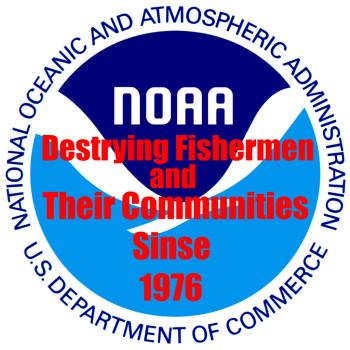 Several presidential candidates have spent a significant amount of time highlighting that none of the those “responsible” for the 2008 financial crisis went to jail. Without passing judgement on the argument that someone should be punished for the mismanagement that may have contributed to the economic downturn, it does raise an interesting question. In a heavily regulated industry, what culpability do the regulators have when things go horribly wrong? The regulators, of course, exist to protect the public, consumers and often the environment. The National Oceanic and Atmospheric Administration’s (NOAA) National Marines Fisheries Service, which has been rebranded as “NOAA Fisheries” after getting a well-deserved reputation of destroying fishing communities, is responsible for the management and regulation of New England’s ground fish fisheries. Taking a look at the history of how the fisheries have been managed, the results have been poor. Read the rest here 13:51
Several presidential candidates have spent a significant amount of time highlighting that none of the those “responsible” for the 2008 financial crisis went to jail. Without passing judgement on the argument that someone should be punished for the mismanagement that may have contributed to the economic downturn, it does raise an interesting question. In a heavily regulated industry, what culpability do the regulators have when things go horribly wrong? The regulators, of course, exist to protect the public, consumers and often the environment. The National Oceanic and Atmospheric Administration’s (NOAA) National Marines Fisheries Service, which has been rebranded as “NOAA Fisheries” after getting a well-deserved reputation of destroying fishing communities, is responsible for the management and regulation of New England’s ground fish fisheries. Taking a look at the history of how the fisheries have been managed, the results have been poor. Read the rest here 13:51
FISHY BUSINESS: Support your neighborhood fisherman – It’s So Sexy!
 Last month this column bemoaned the economic challenges of the local fishing fleet and examined why we are seeing fewer and fewer commercial fishing boats in Scituate Harbor. To recap, the basic problem is that over regulation has reduced the ability of fishing businesses to harvest a reasonable amount of fish and sell it for a price that is profitable. Further, the infrastructure that supports fishing is more focused on processing foreign fish instead of the local supply. The good news for both fishermen and consumers alike is there is an alternative to the “old economy” of fishing through Scituate’s own community supported fishery, South Shore Seafood Exchange, Inc. (SOSSEXI). That’s right, it is pronounced, “So Sexy.” Read the rest here 17:31
Last month this column bemoaned the economic challenges of the local fishing fleet and examined why we are seeing fewer and fewer commercial fishing boats in Scituate Harbor. To recap, the basic problem is that over regulation has reduced the ability of fishing businesses to harvest a reasonable amount of fish and sell it for a price that is profitable. Further, the infrastructure that supports fishing is more focused on processing foreign fish instead of the local supply. The good news for both fishermen and consumers alike is there is an alternative to the “old economy” of fishing through Scituate’s own community supported fishery, South Shore Seafood Exchange, Inc. (SOSSEXI). That’s right, it is pronounced, “So Sexy.” Read the rest here 17:31
Putnam: Promise of progress in hard lessons learned
Our local fishing fleet received some early Christmas presents this month, providing for some rare good news when it comes to the regulation of their business.The four-month ban on lobstering in 912 square miles off Massachusetts which was scheduled to start on Jan. 1, 2015 has been postponed by one month. The lobstering moratorium is part of the National Oceanic and Atmospheric Administration’s (NOAA) Atlantic Large Whale Take Reduction Plan. Read the rest here 09:10
PUTNAM: Slow government action hurts fisheries
 Christian Putnam is a Scituate resident and board member of Friends of South Shore Fisheries. This is his take on administrative bureaucrats, stock assessments, cod behavior, and the Canadian cod fishery, which by some unknown to our regulators reason, is experiencing an ongoing cod renaissance for as long as Gulf of Maine cod have been missing! Read the rest here 16:59
Christian Putnam is a Scituate resident and board member of Friends of South Shore Fisheries. This is his take on administrative bureaucrats, stock assessments, cod behavior, and the Canadian cod fishery, which by some unknown to our regulators reason, is experiencing an ongoing cod renaissance for as long as Gulf of Maine cod have been missing! Read the rest here 16:59

































